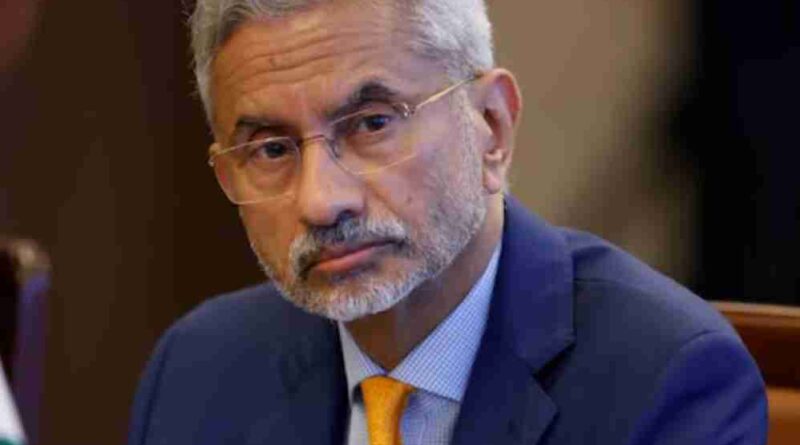India’s Strategic Calm: Jaishankar Responds to U.S. Tariff Threats Over Russian Oil With Measured Diplomacy
In a world increasingly shaped by sharp political rhetoric and rapid policy swings, India is treading a steady, calculated path—especially when the stakes involve its national interests and global partnerships. The latest diplomatic curveball came in the form of U.S. Senator Lindsey Graham’s proposed bill that would slap a whopping 500% tariff on countries importing discounted Russian oil, with India being an implicit, if not direct, target.
But India’s External Affairs Minister, S. Jaishankar, didn’t flinch. Speaking at a recent public interaction in New Delhi, he offered a characteristically composed response: “We’ll cross that bridge when we come to it.”
That wasn’t just a cliché. It was a signal.
A Calm Amid the Storm
Jaishankar’s brief but weighty statement encapsulates New Delhi’s broader diplomatic posture—firm, self-assured, and unapologetically focused on national interest. India is well aware of the geopolitical chessboard it’s sitting on, particularly with the ongoing Russia-Ukraine war, shifting energy alliances, and the West’s growing frustration over the Global South’s reluctance to follow its script.
Rather than reacting impulsively to the proposed U.S. bill, Jaishankar chose to emphasize strategy over soundbites. His approach reflects India’s evolution as a mature power that weighs consequences before reacting—especially when the fallout could impact its energy security, trade ties, and diplomatic balance between East and West.
Energy Needs vs. Political Pressure
India has long defended its import of Russian crude, pointing to one of the most straightforward truths in international relations: survival and sovereignty matter most. With over 1.4 billion people and a rapidly growing economy, India needs stable and affordable energy sources. Russian oil, offered at discounted rates amidst Western sanctions, fits that requirement.
While critics argue that these purchases indirectly help fund Russia’s military operations in Ukraine, India counters with pragmatism: the country isn’t violating any international laws or UN sanctions. In fact, New Delhi has been transparent in its dealings, publicly disclosing import levels and making no secret of its engagement with Moscow.
To Jaishankar and many Indian policymakers, the underlying question is simple: Why should India sacrifice its energy needs to satisfy Western geopolitical priorities?
The Realpolitik of Global Trade
Senator Graham’s bill—though still in a proposal phase—raises several complicated questions. Would the U.S. actually impose such steep tariffs on a key partner like India? Would such economic coercion damage bilateral relations? Or is this more political posturing ahead of a tense U.S. election cycle?
India, for its part, isn’t naïve. It knows the difference between policy in motion and political theater. Jaishankar’s comment suggests that while India won’t ignore the bill, it also won’t be bullied by it. This is especially significant considering India’s growing economic clout and the increasing recognition it receives as a strategic counterweight to China.
Strategic Autonomy Still Rules
This moment once again reinforces the principle India has championed on the world stage: strategic autonomy. Whether it’s purchasing oil from Russia, buying defense equipment from France, or maintaining an active role in both the QUAD and BRICS, India refuses to be boxed into rigid alliances.
Jaishankar’s restrained reaction isn’t just diplomacy—it’s doctrine. India’s foreign policy, under Prime Minister Narendra Modi and Jaishankar’s stewardship, has consistently focused on keeping channels open with everyone while aligning decisively with none.
That doesn’t mean India is being evasive. It simply means the country is asserting its right to make independent decisions based on its own realities, not those dictated by far-off capitals.
What’s Next?
It’s unclear whether Graham’s bill will pass, and even if it does, how aggressively it will be enforced. But what’s certain is that India won’t be hastily pivoting away from Russian oil any time soon unless there’s a compelling reason rooted in its own interests—not external pressure.
The situation also underscores a wider shift in the global order. Countries like India are no longer playing supporting roles in a U.S.-dominated world. They are becoming authors of their own foreign policies, setting boundaries, and engaging with complexity rather than submitting to it.
As for “crossing that bridge,” India may not be in a rush—but when it gets there, it will do so on its own terms.
And perhaps that’s what real diplomacy looks like in 2025.
Disclaimer
The information and content shared on digitalgithub.com — including articles, blogs, news, guides, and other resources — is intended for general informational and educational purposes only. We do not guarantee the completeness, reliability, or suitability of any information. Always seek the guidance of a qualified professional before making decisions based on the information you read. Use this site at your own risk.

